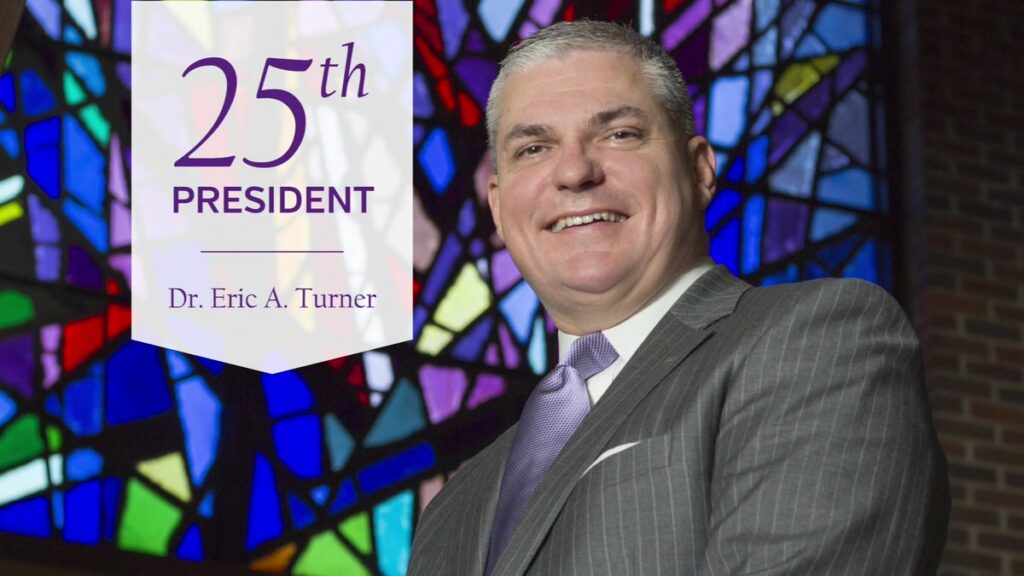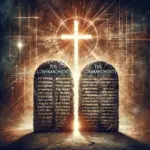
In December, P&P reported that Southwest Baptist University, a Southern Baptist and Missouri Baptist Convention-affiliated school located in Bolivar, Missouri, had fired a professor for objecting to heresy. Clint Bass had been asked by officials in the Missouri Baptist Convention to research and report the theological leanings of fellow faculty because there were many reports that some were teaching contrary to the Southern Baptist Faith and Message (2000), and some were teaching outright heresy. Instead of researching his claims fully, upon learning of his activities, SBU President, Eric Turner, inexplicably firing Bass, saying that he had “undermined the integrity of the institution.”
Outrage soon developed as a petition expressing discontent with the situation surfaced, which was signed by a number of influential Southern Baptists in defense of Bass. As the dust settled, it became clear that the Dean of the Courts Redford School of Theology and Ministry (the SBU under-college) dean, Rodney Reeves had indeed been teaching heresy along with a number of other professors.
The evidence against Reeves seemed overwhelming. There was audio evidence and many, many testimonies of concerned students and peers who verified his unorthodox positions. And again, his own words are the greatest evidence against him. You can see all that indisputable evidence here.
In response to this outrage and for the purpose of damage-control, Turner announced that a committee was formed to investigate whether or not SBU faculty members were indeed teaching heresy. Of course, this should have been done before they fired Bass for daring to care about theology (as theology professors are bound to do). At the time, I explained that this committee was nothing but a Kangaroo Court, and the outcome was already pre-determined. That post was entitled, Southwest Baptist University Forms Kangaroo Court to Defend Heretical Professors.
As I predicted, the committee – led by an ecumenist who thinks Roman Catholics are born-again believers – found no fault in the professors (in spite of the overwhelming evidence otherwise). In the meantime, Missouri Baptist Convention trustees – some of whom I’m personally related to – proved themselves to be feckless cowards as they let SBU run amock without speaking out or doing anything to reign in their rogue entity. We wrote about that in the post, Missouri Baptists Stand Up for Heresy, Shame Jesus.
It became quite evident that the divide at SBU and the MBC is between liberals and conservatives. Those who would have sided with the liberals during the Conservative Resurgence were fine with firing Bass and protecting the heretics. Those who would have sided with the conservatives stood on the other side, with Professor Bass and Jesus. It’s about this time that the liberal Missouri Baptist publication, which is as much affiliated with the Cooperative Baptist Fellowship as the Missouri Baptist Convention, ran a hit piece on me personally. The Word and Way editor, in order to defend the heretic, Rodney Reeves, and the corrupt Baptist system that allows heresy to prosper, accused this publication of “anti-Semitism” (because we criticized George Soros) in order to discount our reporting on the SBU heresy scandal.
The Missouri Baptist establishment, comprised of theological liberals, good ol’boys, progressivist newspapermen, and outright heretics, has not been reigned in or held back by Missouri Baptist Convention trustees and officials whose job it is to manage their institutions. To reiterate, shame on them all.
Today, SBC Echoes posted an open letter from SBC Alumni disagreeing with an SBU sub-committee’s findings, affirming that Reeves and other SBU professors indeed do teach heresy, and stating the obvious; claiming that SBU faculty affirm the Baptist Faith and Message (2000) is flatly deceitful.
Their letter is lengthy, but quite well-written. I wish they would’ve given it to a press outlet that actually has the muscle and reach to get it out there. In spite of its length, it’s worth the read.
THE OPEN LETTER FROM SBU ALUMNI
Having observed the recent controversies at our alma mater, Southwest Baptist University (SBU), a number of like-minded alumni have corresponded and determined it would be beneficial to provide alumni testimony and express our concerns regarding SBU.
All of us had amicable relationships with our professors. Some of our professors welcomed us into their homes and treated us with genuine kindness and respect. These positive experiences notwithstanding, we are compelled by recent events to bring to light doctrinal concerns related to some of the Redford faculty and their teaching.
We have read a recent press release from SBU stating that there has been a “previous affirmation of the Baptist Faith and Message 2000 that has been made by all faculty of the Courts Redford College of Theology and Ministry.” This report has invoked incredulity and bewilderment from all of us, as we consider our own experience in the Redford College alongside recent statements that have surfaced from an on-campus forum. (Links: full audio, condensed audio, full transcript). We look on with astonishment that a sweeping claim of this nature could be made in light of our experience within Redford, but also in view of the particular controversy at hand: For what purpose would Dr. Clint Bass surface heterodox views if the entirety of the Redford faculty unequivocally and without reservation affirmed the Baptist Faith and Message 2000 (BF&M 2000)?
Without addressing questions related to the timing of this affirmation, the means by which it was made, or the manner by which the Administration has and will enforce it, there are obvious discrepancies between the report of this affirmation and our own experiences. In our estimation, a vast chasm exists between our professors’ affirmation of the BF&M 2000 and their actual teachings and beliefs.
The incredulous response from alumni in reaction to this report arises from our experiences at SBU, where at times our professors were unclear on doctrines expressed in the BF&M 2000, or were teaching in direct opposition to it. While our experiences were not the same, we can collectively affirm that our instruction from some Redford professors was not in accord with the BF&M 2000.
We are also concerned for the sincerity of Redford faculty’s affirmation of the BF&M 2000. Dr. Rodney Reeves, the Dean of the Redford College, has publicly stated that while he agrees with the BF&M 2000, “words have meanings and there are different ways of interpreting them.” Speaking on the doctrine of hell, Dr. Reeves goes on to say that “I subscribe to it [BF&M 2000], but we can—that doesn’t mean that I will read the confession the same way you will. You hear everlasting one way, I hear it another way.” We believe Dr. Reeves’ approach to confessionalism undermines the purpose of confessionalism. His approach relativizes language in such a way that makes articles of faith meaningless, and renders the longstanding Baptist practice of subscription useless.
Our experience is captured in part by a statement made in an email by Dr. Don Denton, the Chair of Redford’s theology department to Dr. Reeves regarding specific doctrinal questions asked by a prospective student’s father. The Chair wrote, “If he [parent of prospective student] requires any further doctrinal precision beyond this [Principles and Expectations], SBU may not be a comfortable place for him to send his son.” The discomfort that is described and expected from the Chair is characteristic of our experience. The climate of theological latitude in Redford was unexpected and disorienting to us as students. We entered Redford trusting our professors—we had no reason for distrust—but left considering many of them to be unreliable guides.
Inspiration and Inerrancy
We are concerned about recent statements made by Dr. Reeves, who has recently affirmed the doctrine of inerrancy. In his recent affirmation concerning biblical inerrancy, he has gone so far as to say that he affirms inerrancy even as it is defined by the Chicago Statement on Biblical Inerrancy. For many of us who sat under his teaching, we regret that Dr. Reeves did not speak with such conviction and confidence in the classroom. At least one alumnus experienced his teaching to directly contradict this affirmation when twice calling the account of the fig tree in the Gospels of Matthew and Mark a contradiction. Dr. Reeves gave no further explanation for his statements. Many of us were unsettled, either by his intentional lack of clarity on the doctrine of Scripture or by his teaching that challenged or contradicted the doctrine of inerrancy.
Dr. Reeves was not the only professor who undermined the doctrine of inerrancy. At least one alumnus recalled Dr. Fuhrman explicitly questioning biblical inerrancy during a classroom lecture many years ago.
In a New Testament course, the inspiration of 2 Peter was questioned by Dr. Reeves. Dr. Reeves confessed that he would not be surprised if, when we arrive in heaven, we learn that 2 Peter was not inspired. To ease the minds of the students, Dr. Reeves proceeded to explain that we can believe 2 Peter is Scripture because the Church declared it to be so.
Men and Women
The perennial debates over men and women’s roles in the home and the church were also among those important areas about which many of us were challenged as students. We found that in our ministry instruction, rather than instilling a biblical vision for family and pastoral leadership, at least one of our professors undermined it. One alumnus was compelled to defend the biblical position of male headship revealed in Ephesians 5 in class with Dr. Fuhrman; at least one alumnus recalls Dr. Fuhrman publicly shaming students who believed that the task of preaching was exclusively reserved for men. Two different alumni have reported that Dr. Fuhrman openly advocated for women to preach during Ministerial Education Days, where students were sent out to preach in local churches. In his instruction many of us observed a lack of clarity, even outright dismissals of the biblical role of male leadership in the home and the church. In short, Dr. Fuhrman’s teaching at many times opposed article XVIII regarding the family in the BF&M 2000.
In an age defined by the sexual revolution, which has led to the erosion of biblical faithfulness within evangelicalism on these issues, we mourn the lack of clarity and conviction— even opposition—that we experienced in the Redford College.
Justification by Faith
Students entering Redford are unlikely to be prepared to meet the challenge to the Protestant doctrine of justification in the classroom. One of our greatest troubles as students revolved around the intentional lack of clarity from professors on the nature of salvation, specifically regarding the doctrine of justification and imputation. Discussions regarding the New Perspective on Paul, a recent movement in which many scholars have abandoned the traditional Protestant doctrine of forensic justification, abounded in the classroom. While we recognize there have been some genuine insights that this movement has brought to our understanding of Pauline theology, its presentation by some of our professors at best left the doctrine of justification to be questioned; at worst the doctrine was mocked and criticized. One student recalls an occasion where a notable pastor-scholar who defended the traditional Protestant doctrine was criticized, while his New Perspective opponent was applauded. Needless to say, many of our Redford courses did not engender confidence towards justification and imputation—hallmark doctrines of Protestant theology since the Reformation.
Furthermore, recent statements made by Dr. Manis at the forum on hell appear to implicitly deny the doctrine of justification and imputation. While we agree that sanctification and conformity to Christ’s image is part of salvation broadly considered, we deny any need for a “post-mortem development” of sanctification. Such an understanding of salvation amounts to a denial of justification and imputed righteousness. Contrary to Dr. Manis, we believe that God does work instantaneously, applying Christ’s righteousness to us at the moment of faith. We are, from that point onward, counted righteous in Christ. Believing, then, that we are declared righteous by faith, having Christ’s righteousness applied to our account, we deny any need of a post-mortem process of sanctification. Statements to the contrary constitute a denial of justification and imputation as understood by Protestants since the time of the Reformation.
We believe the doctrine of justification stands at the heart of the gospel; it is a doctrine Southern Baptists should expect to be heralded with deep conviction. We did not experience this confidence in many of our classes. Many of us experienced the contrary. On this important doctrine of the Christian faith, we were often helped more by influences outside the classroom than within.
Hell and the Afterlife
Dr. Reeves has recently posted on his blog that he is not an annihilationist. For those of us who were told personally by the Dean that he held to annihilationism, his assertion is difficult to reconcile. It is also very difficult to reconcile with his public statements. At the previously-mentioned forum discussion on the doctrine of hell, Dr. Reeves stated, “I believe that the wicked are annihilated, that God does not keep the fires going just to keep them burning.” Additionally he states, “If I am to put a percent on it, I am like fifty-five percent annihilationist.” These statements are in direct contradiction to the BF&M 2000, which in article X states that “The unrighteous will be consigned to Hell, the place of everlasting punishment.”
In Dr. Reeves’ recent blog post, titled, “Why I’m not an annihilationist,” he wrote that he used to “lean” towards annihilationism. Having for years told students in both public and private settings that he held to annihilationism—as recent as Fall 2017 at the hell forum—we wonder at what point Dr. Reeves changed his position. We also wonder what prompted Dr. Reeves to re-examine his position and what ultimately persuaded him to change his mind. It has not gone unnoticed that his blog was published the day of Dr. Bass’ dismissal hearing, at which time Dr. Bass was asked by SBU’s attorney to agree to non-disclosure.
Regrettably Dr. Reeves is not the only professor whose statements regarding hell and the afterlife are outside the bounds of the BF&M 2000; nor is an affirmation of annihilationism the only troubling viewpoint expressed by Redford faculty. At the same forum on hell, Dr. Manis’ stated, “I am an inclusivist. You know what, I believe all of you are too.” After Dr. Manis provides examples of what he perceives as “exceptions” to exclusivism, Dr. Manis then asks why the logic of these “exceptions” would not be extended to those who, “through no fault of their own, never heard the gospel.” Dr. Reeves also expressed a form of inclusivism during the forum, explaining that Romans 2 provides a “hint” that Gentiles who have not heard the gospel will be justified. Contrary to Dr. Reeves, we believe Romans 2 teaches the opposite, that the law being written on men’s hearts makes them liable to judgment—it is no cause for justification.
Pedagogy
The theological instruction received at SBU was often silent, or seemingly indifferent, in areas of study where the Scriptures are clear. This lamentable situation is a result of some of our professors’ vision for Christian liberal arts and theological education. According to Dr. Manis’ recent statements, “One of the primary tasks of Christian education—including theological education—on this alternative model is that of equipping students to think for themselves.” Our concern regarding the model of teaching expressed in Dr. Manis’ article, and experienced by many of us, is how it functions in Redford to eschew and undermine confessional, theological education. All of us believe that teaching students how to think is one purpose of a Christian university, and in this respect we applaud our professors for equipping us in this important discipline. But the Christian university has failed if it does not also contend for the faith. We believe it is false to assume that professors cannot equip student how to think, while at the same time contending for biblical truth.
SBU should be a place where different viewpoints are taught, discussed, and appreciated. None of us desire a university that shuns questions about the faith. We invite all questions because we believe the truth of God’s word holds up to even the most scrupulous scrutiny. But asking questions, appreciating disagreements, and entertaining questions is not sufficient. SBU should also be a place where theological truth is championed. Crucial areas of the faith and Christian life should not be left up to constant questioning; they should be heralded as the glorious truths that they are. Perpetual doubt in God’s revelation is not a sign of humility; it is a sign of unbelief. Christian universities should not undermine essential doctrines of the faith by this manner of teaching; they should strive to strengthen our resolve in them.
For many of us, it was not until we had received further theological training at Southern Baptist Seminaries that we could better understand the doctrinal instability we experienced at Redford. It should also be noted that attending Southern Baptist seminaries was openly discouraged by Redford faculty. Instead, some of us were heavily encouraged to attend Truett Theological Seminary, a Cooperative Baptist Fellowship seminary affiliated with Baylor University. On one particular occasion, upon notifying a faculty member that he was planning to attend a Southern Baptist seminary, a professor proceeded to call the president of this Southern Baptist entity a “jackass” and “a fundamentalist.” Another alumnus was encouraged by a non-Redford faculty member to attend Truett so that he could “think for himself.”
To the contrary, our experiences within Southern Baptist seminaries were refreshing to our souls. No longer did we need outside counsel to shore up our gospel convictions; no longer did we wonder where our faculty stood on important matters of faith; no longer did we question our professors’ teaching on central doctrines with uneasiness. This does not mean we did not ask questions, or disagree with our seminary professors. We did then and we still do. But we learned what theological education looks like within a confessional context, where the doctrinal boundaries were defined so that our convictions could deepen and expand, supported by a solid foundation. We found that having a biblical confessional standard provides a foundation on which to build a healthy theology. We believe the BF&M 2000 to be such a standard.
The Future of SBU
The theological concerns addressed above are not isolated instances of minor doctrinal deviation. We believe this phenomenon to be indicative of widespread doctrinal infidelity in the Redford College. As such, we are troubled by the Administration and Trustees’ management of these concerns after they had been alerted to them. The grounds for the dismissal of Dr. Bass, based on Dr. Turner’s statement that his theological allegations were unfounded, is seriously undermined by our experience and other available evidence. We are aware that many of our testimonies have been read by Administration and Trustees, but we regret that they appear to have treated them with little or no regard.
We are perplexed that the Trustees and Administration could listen to the hell forum audio and yet, in good conscience, publish a report of a “previous affirmation” of the BF&M 2000. The Administration and Board of Trustees send conflicting messages when they report full affirmation of the BF&M 2000, which suggests confidence in doctrinal fidelity, while also commissioning a committee to evaluate “orthodoxy” at SBU.
We strongly believe the future vitality of SBU will depend on the course it takes in the face of these concerns. Given the cultural climate in which the church ministers, the future of Christian education must be more confessional, not less so. The resolution of the widespread doctrinal infidelity at SBU calls not only for dynamic institutional leadership, but convictional, theological leadership with strength to animate a vision for a distinctly Christian liberal arts education that is confessionally faithful. We know it is a demanding endeavor, but we believe it is one worth undertaking.
As concerned alumni of Southwest Baptist University, we call on Missouri Baptists to be vigilant about the doctrine being taught at SBU. We call on leaders in the Missouri Baptist Convention to hold SBU accountable for errant doctrine being espoused at SBU. We call on parents to be discerning about their child’s education. We call on SBU’s Administration and Trustees to solicit feedback from Missouri Baptist pastors and alumni regarding the doctrine taught at SBU. Lastly, we call on President Turner and the Board of Trustees to outline specific steps that this Administration plans to take in order to ensure that the doctrinal teaching at SBU is consistent with the doctrine confessed in the BF&M 2000 by both Missouri and Southern Baptists. Until these doctrinal concerns are properly addressed and rectified, we cannot, in good conscience, recommend students to study in SBU’s Courts Redford College of Theology and Ministry.
We will continue to pray that Trustees and Administration at SBU will take meaningful steps to lead the school back to its charter so that SBU may “conserve, defend and promote the fundamentals of Baptist Faith, and in all its teachings and policies conform to and be in harmony with the established and acknowledged principles and policies of Baptist churches affiliated with the Missouri Baptist Convention and with the Southern Baptist Convention.”
Logan Battiste, B.A. Christian Ministry, 2017
Gary Bernhardt, B.A. Biblical Studies, 2018
Brice Flynn, B.A. Religious Studies, 2008
Jeremiah Greever, B.A. Biblical Studies, 2012
Timothy Haupt, B.A. Mathematics, 2005
Glen Higgins, B.A. Biblical Studies, 2013
Ronni Kurtz, B.A. Biblical Studies, 2014
Thomas Murphy, B.A. Biblical Studies, 2012
John Powell, B.A. Biblical Studies, 2005
Trent Roseman, B.A. Biblical Studies, 2015
Zachary Shelton, B.M. Church Music, 2018
Hayden Spray, B.A. Religion and Philosophy, 2018
Jonathan E. Swan, B.A. Biblical Studies, 2012
Nathan White, B.A. Biblical Studies, 2018
[Publisher’s Note: Shame on Missouri Baptist Convention and SBU trustees, who should be doing their job and exercising a fiduciary responsibility over their institutions; contributed by JD Hall]












